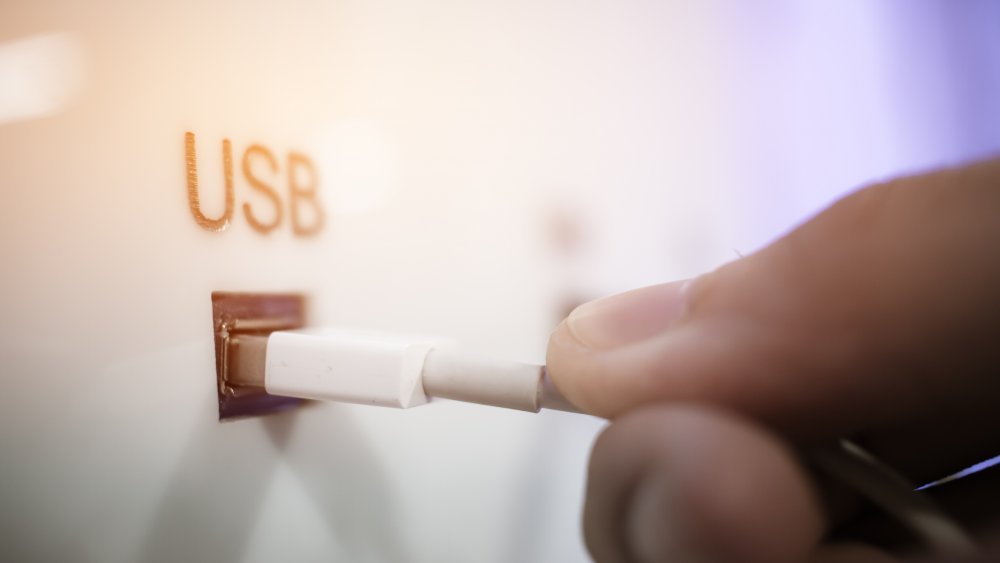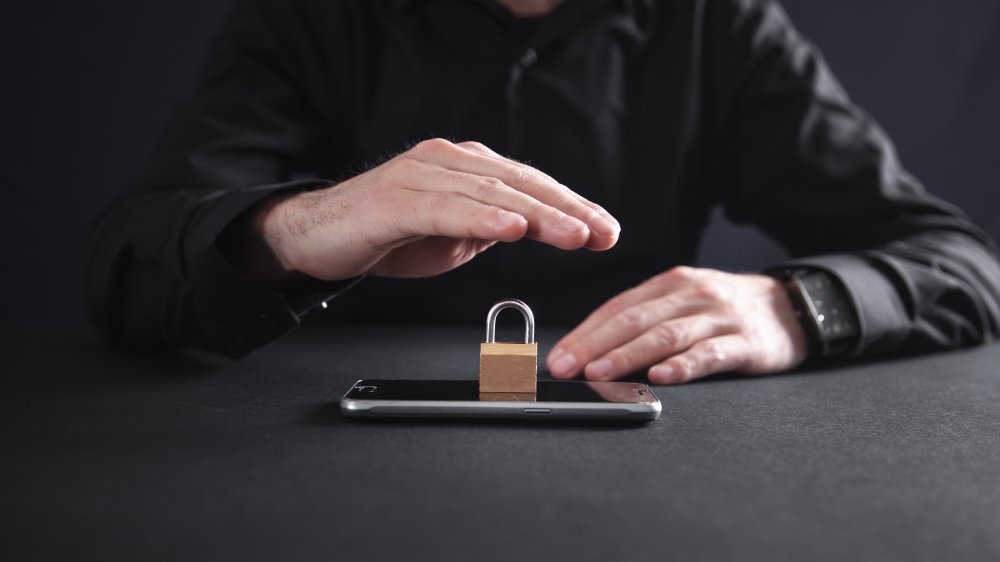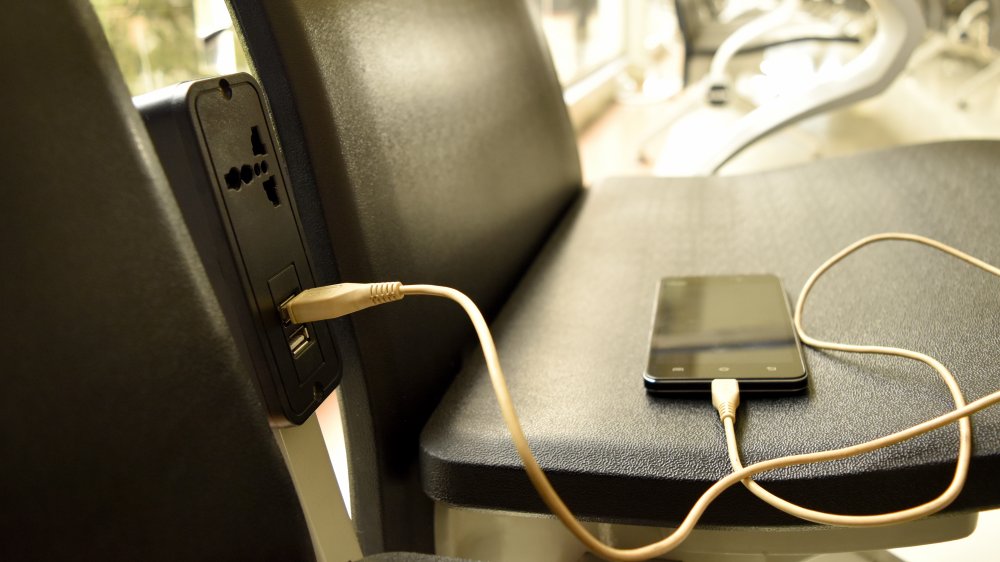Why You Should Avoid Airport USB Charging Stations
Much of what happens at an airport feels either vaguely or explicitly illegal. TSA agents can take you to a private room to touch your private parts, according to US News and World Report. ABC reports that airports have a troubling history of letting employees skip security screenings, which has occasionally opened the door to terrorists, including one who "bragged to an undercover FBI agent that he could smuggle a bomb onto an aircraft for a $4,000 fee." One airport employee told CNN that "cleaning crews, flight-line mechanics," and "any [other] airline employee with access to a just-arrived commercial airliner" will scour the aircraft for valuables left by passengers. Meanwhile, baggage handlers have been caught on camera looting luggage. And let's not forget the airport stores with prices so sky-high that customers are in danger of suffering altitude sickness.
On top of the over-the-top fees, underhanded luggage handlers, and handsy TSA agents, there's a less obvious threat you have to worry about at airports: USB ports. It turns out that the seemingly harmless activity of charging your smartphone at a public kiosk can leave you vulnerable to cyber crime.
Beware of juice jacking
"Juice jacking" sounds like a seductive way to squeeze an orange. But really, it's a different kind of naughty. How-to Geek explains that because your smartphones use the same USB cable for charging and transmitting data, hackers can access information on your phone or upload malware via the USB port while you're charging your device. (Hence, they're hijacking your phone as it replenishes its energy, or "juice"). Unfortunately, juice jacking might not be hard to pull off. Speaking at a BlackHat security conference in 2016, researchers Billy Lau, YeongJin Jang, and Chengyu Song described "how an iOS device can be compromised within one minute of being plugged into a malicious charger."
To make matters worse, even after you've unplugged your device from the compromised cable, "the kiosk you just recharged your iPhone with can, theoretically, maintain a Wi-Fi umbilical cord to your iOS device." So once a hacker has gotten a foot in the door, it could potentially open the electronic floodgates. So while you're busy sending sexy photos of oranges to your significant other on your freshly juiced phone, some sneaky creep could be juice jacking, and you wouldn't have a clue.
How to protect your phone from juice jacking
How-to Geek calls juice jacking "a largely theoretical threat" with "a very low" probability of occurring at an airport kiosk you might use. But the Vice President of X-Force Threat Intelligence at IBM Security, Caleb Barlow, warned that "plugging into a public USB port is kind of like finding a toothbrush on the side of the road and deciding to stick it in your mouth. You have no idea where that thing has been." And if you did that at the airport, the TSA would probably confiscate your mouthwash and toothpaste as you frantically tried to scrub and swish the ickiness away.
To protect your phone's mouth from getting juice-jacked by a stranger's electric toothbrush, Barlow recommends investing in a device called a Juice-Jack Defender, which is "a little dongle you can put in front of your charging cord." Similarly, Bruce Schneier of the Berkman Center for Internet and Society at Harvard University suggested using the so-called USB Condom when charging your phone at airport kiosks. Alternatively, you could pack a portable battery or your personal charger, and avoid using the charging kiosk altogether.
The Juice-Jack Defender versus the USB condom
In case you take your chances with an airport kiosk and want some protection, Krebs on Security reviewed the Juice-Jack Defender and the USB Condom, both of which are designed to thwart would-be juice jackers. Describing the devices as "prophylactics," Krebs notes that both are equipped "with male and female USB adapters at either end" and are functionally "indistinguishable" despite "slight" differences in size, shape, and texture. True to its name, the USB Condom has "a clear plastic sheath" around it. The Juice-Jack Defender, by contrast had a rubberized wrapping. Admittedly, the review reads like a lesson in the birds and the USBs. But if the devices work as intended, your phone won't get pregnant with a virus.
According to Krebs, the Juice-Jack Defender is a bit smaller than the condom, but what it lacks in size, it makes up for in durability. Meanwhile, the the USB Condom, which is presumably magnum-sized, seemed more likely to break, as condoms are known to do from time to time. In fairness, Krebs didn't perform a stress test, and you can't always judge a condom by it's wrapper. But it should go without saying that the safest option is abstinence.



